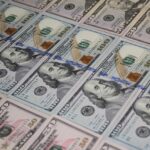Japan Urges Revision of US Presidential Order on Tariffs
Japan is pushing for a revision of a US presidential order that allows for the imposition of tariffs, highlighting ongoing trade tensions between the two nations. This move signals Japan’s continued concern over the potential negative impact of these tariffs on its economy, particularly its crucial automotive sector.
Why this matters for investors:
- Impact on Japanese automakers: Tariffs increase the cost of Japanese vehicles in the US market, potentially hurting sales and profitability. Companies like Toyota, Honda, and Nissan are particularly vulnerable. What’s going on with U.S. car prices? Morgan Stanley weighs in
- Trade war escalation: The move could reignite trade tensions between the US and Japan, potentially leading to retaliatory tariffs and disrupting global supply chains. Trade imbalances and the limits of trade policy Tuesday Briefing: Trump’s Tariff Leverage
- Market volatility: Uncertainty around trade policy can create market volatility, impacting investor sentiment and potentially leading to sell-offs in affected sectors. Morning Bid: Tariff toll yet to deter stock bulls Trading Is a Numbers Game—Here’s Why That’s a Good Thing
- Currency fluctuations: Trade disputes can also influence currency exchange rates, impacting the profitability of international businesses and investments. Asia FX weakens slightly, rupee recovers from record low as RBI holds rates Dollar weakens as rate cut odds rise, tariff uncertainties linger
Economic Implications:
- Japan’s economy, heavily reliant on exports, could suffer if tariffs remain in place. RBI holds rates steady as expected, says tariffs pose growth risks
- The US economy could also be negatively impacted if tariffs lead to higher prices for consumers and reduced access to Japanese goods. What Do Trump’s Tariff Hikes Mean for Canada’s Trade-Dependent Economy?
- The global economy could experience disruptions to supply chains and reduced trade flows. Trade deal clears way for BOJ to tiptoe back to rate hikes
Potential Opportunities:
- Some domestic US industries may benefit from reduced competition from Japanese imports. US farm agency allows six more states to bar some items from food aid
- Investors could find opportunities in companies that are less exposed to trade tensions or that stand to benefit from shifts in global trade patterns.
Looking ahead: The outcome of Japan’s push for tariff revision will be crucial for the future of US-Japan trade relations. Investors should monitor developments closely and consider the potential impact on their portfolios. Japan’s Ishiba signals talks with Trump for early cut to US auto tariff Reaction to South Korea’s trade deal with Trump
matadorfx.co.za is not a financial advisory service, and its content should not be interpreted as such. We do not provide personalized financial advice, nor do we endorse any specific financial products, services, or strategies.
Before making any financial decisions, we strongly recommend that you consult with a qualified and independent financial advisor who can assess your individual circumstances and provide tailored advice.
Trading and investing in financial markets involves substantial risk, and you could lose all or more of your initial investment. Past performance is not indicative of future results. You should be aware of all the risks associated with financial trading and seek advice from an independent financial advisor if you have any doubts.
matadorfx.co.za, its authors, and its affiliates will not be held liable for any losses or damages incurred as a result of relying on the information presented on this website. By using this website, you agree to this disclaimer.














